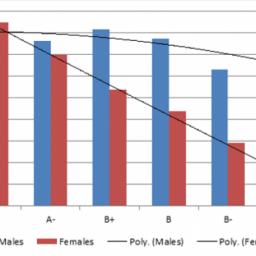
The Atlantic looked at a recent update from the developers of the game Desktop Dungeons to discuss
problems with gender bias in gaming , asking
"can a work be racist or sexist if its creator doesn't mean for it to be?" The developers of the game had recently been
adding female character art to their game with the intention that they would be
"adventurers first and runway models second." While activly trying to avoid doing everything the "simple" way, they came into some problems due to subconcious shorthands creeping in.
"This adjustment turned out to be startlingly non-trivial - you'd think that a bunch of supposedly conscious, mindful individuals would instantly be able to nail a "good female look" (bonus points for having a woman on our crew, right?), but huge swathes of our artistic language tended to be informed by sexist and one-dimensional portrayals. We regularly surprised ourselves with how much we took for granted."

Late last year, US retailer
Target had multiple IT failures that led to 40 million credit cards being leaked. Target lost more than $61 million in breach-related expenditures and incurred a significant decrease to holiday sales.
Businessweek has a lengthy article laying out the failures, among them:
- Despite installing FireEye's monitoring technology, security administrators disabled FireEye's option to automatically delete malware as it is detected, allowing the unclassified 'malware.binary' through.
- When Target India's team received the first critical alert from FireEye, they notified the security team at Target's Headquarters in Minneapolis Minnesota, USA, but the report was ignored or simply no action was taken on it.
- Additional critical alerts were generated, but apparently no action was taken on them.
- Symantec Endpoint Protection detected odd behavior on the same server as detected by FireEye, but this did not raise concern.
- The initial illicit access was gained by an outside vendor's stolen credentials, which should not have given as much network access as it did.
Although the data was copied through a few hops in the US, the destination was ultimately traced to Russia. Analysis of the binaries shows that the malware itself was unsophisticated and included a possible hacker's alias in the 'exfiltration code'.
A company has
developed glasses that will give users not only an interactive, virtual 3-D display, but also the ability to spot individual faces among a crowd of people, something the company says will aid police in predicting and thwarting "future" crimes.
Capitalizing on the popularity of Apple's soon-to-be-released techie eyewear,
Atheer Labs has created a set of eyeglasses that give users "immersive 3-D," surrounding them "with information wherever [they] turn and look.."
Similar to Google Glass, the
Atheer One, as the glasses are dubbed, connects to the web, streams videos, and can act as a virtual calendar and organizer.

Catherine Rampell at
The Washington Post has
"A message to the nation's women: Stop trying to be straight-A students." In her analysis of others' findings, she writes of a discouragement gradient that pushes women out of harder college degrees, including economics and other STEM degrees. Men do not seem to have a similar discouragement gradient, so they stay in harder degree programs and ultimately earn more. Data suggests that women might also value high grades more than men do and sort themselves into fields where grading curves are more lenient.
"Maybe women just don't want to get things wrong," Goldin hypothesized. "They don't want to walk around being a B-minus student in something. They want to find something they can be an A student in. They want something where the professor will pat them on the back and say 'You're doing so well!'"
"Guys," she added, "don't seem to give two damns."
Why are women in college moving away from harder degrees?

A
recent study [Elsevier - paywalled] revealed that preschool-age children are better at figuring out how to use technological gadgets than college students.
CBS News is reporting that researchers at the University of California, Berkeley, tasked 106 children between the ages of 4 and 5 and 170 college students with figuring out how to use a gadget with which they had no prior experience.
The gadget worked by placing different clay shapes in special boxes to determine which combination would cause a box to light up and play music.
Ultimately, the younger children were reportedly much faster at figuring out the correct combination.

From
www.extremetech.com: This is almost incomprehensible: Despite all of the awesome technology that mankind has developed, it's still possible for a Boeing 777-200 with 239 people on board to vanish. It's mind blowing that all we have to go on is the plane's "radar signature" and even then, that last radar reading was so poor that the search area is thousands of square miles of open water. Surely, given the fact that we can track a smartphone anywhere on Earth down to a few meters, there's a better way of keeping track of missing aircraft?
With recent wifi enabled aircraft and scads of modern incoming and outgoing signals, surely they cannot claim that some of the more legacy technology is to blame -- especially in the newest plane on the market? An EPIRB is pretty much mandatory for sea-faring craft and will signal the nearest SAR: why isn't there an equivalent on aircraft?
 The Atlantic looked at a recent update from the developers of the game Desktop Dungeons to discuss problems with gender bias in gaming , asking "can a work be racist or sexist if its creator doesn't mean for it to be?"
The Atlantic looked at a recent update from the developers of the game Desktop Dungeons to discuss problems with gender bias in gaming , asking "can a work be racist or sexist if its creator doesn't mean for it to be?" 


